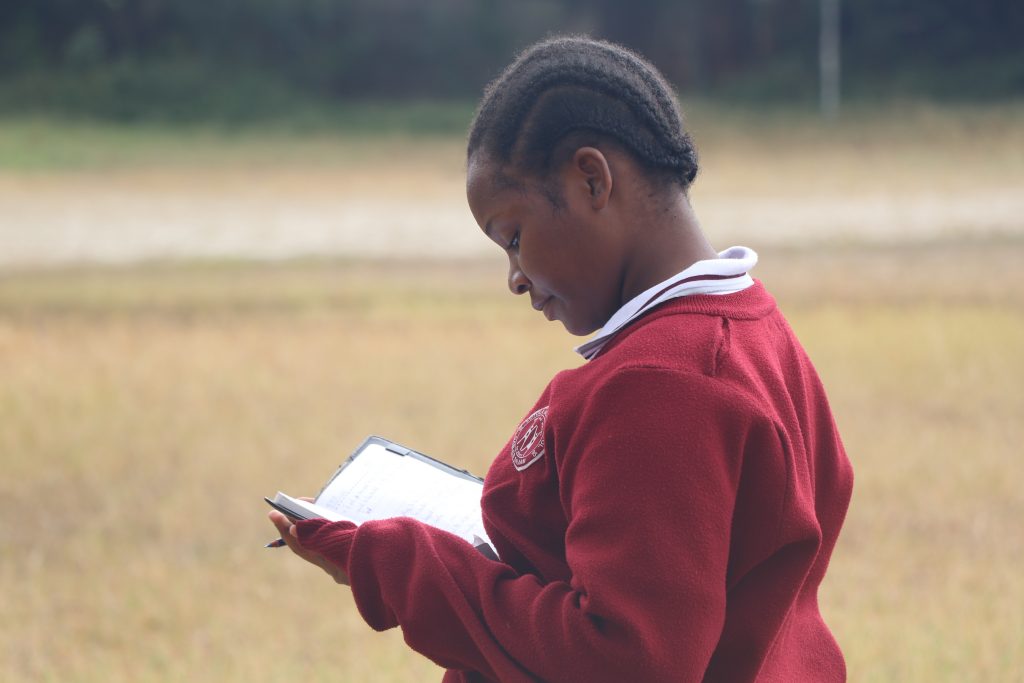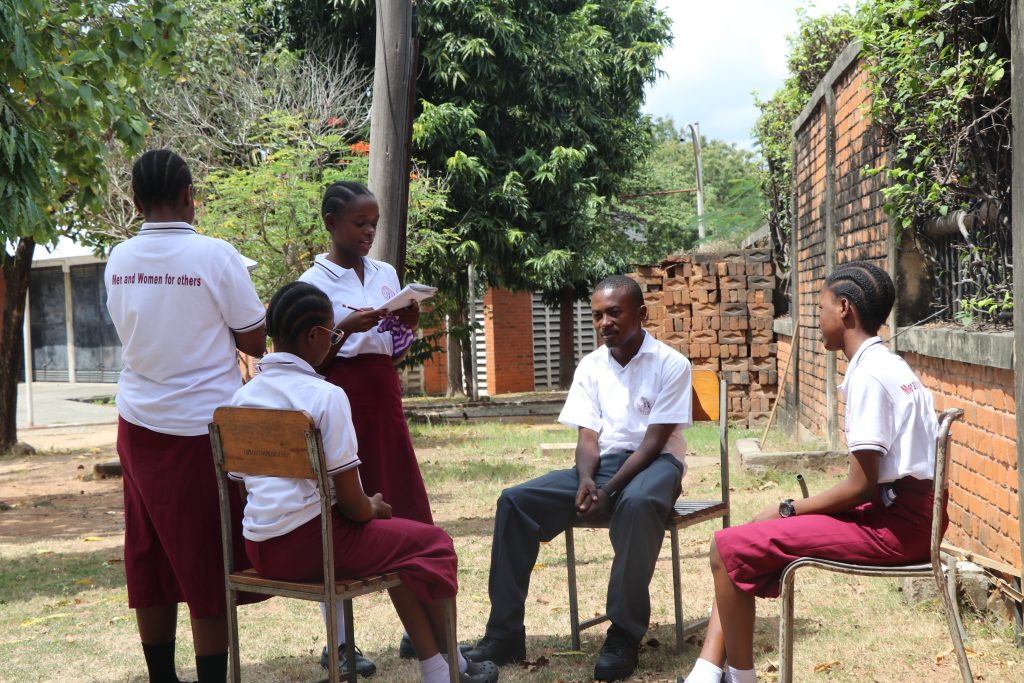Jesuit Education
Loyola High School’s Jesuit education offers a transformative learning experience, integrating academic excellence with spiritual growth, emotional intelligence, and social responsibility. Inspired by St. Ignatius Loyola’s vision, this approach fosters a deep self-awareness, empowering students to make informed decisions and navigate life’s complexities. By combining intellectual curiosity with real-world application, Jesuit education encourages students to confront societal challenges with courage and compassion. Guided by the principle that God is present in every aspect of life “Finding God In All Things” students are inspired to unlock their full potential, becoming men and women for others, dedicated to creating a better world through engagement in activities such as Community Service.

The Hallmark of Jesuit Education
The essence of Jesuit education lies in its holistic approach to developing the whole person. Jesuit schools, such as Loyola High School, are dedicated to nurturing students intellectually, morally, and spiritually, ensuring they are well-rounded individuals prepared to face life’s challenges. This educational tradition prioritizes cura personalis, or care for the individual, aiming to facilitate the growth of each student in all aspects of life. Loyola High School aim to provide a strong academic foundation while offering a variety of extracurricular activities tailored to cultivate each child’s unique gifts and talents.

What makes Jesuit education distinctive is its more than 400 years of unwavering commitment to the formation of men and women of outstanding virtues and character. Jesuit schools aim to develop students who are not only academically competent but also morally sound and spiritually aware. This is achieved through a strong partnership with parents, where students are encouraged to make the most of their God-given abilities. The education they receive is not just for personal gain but is intended to be used in service to others, especially the most marginalised in society. This ethos of love, service and justice is central to Jesuit education, reflecting the belief that love of God necessarily includes love for others, particularly the least fortunate.
The Ignatian Education Tradition
The Ignatian tradition, originating from the Spiritual Exercises of St. Ignatius Loyola, is a spirituality and a way of being that emphasises finding God in all things. This tradition is characterised by several key principles that set it apart. Discernment and freedom are central to Jesuit education, guiding individuals to make choices that lead them closer to God and away from what distracts them from this path. The art of discernment helps students and educators alike to understand and follow God’s desires for the world, working collectively towards a society marked by justice and peace.
Another distinctive feature of the Ignatian tradition is the presumption of goodwill. This principle emphasises the importance of trust, generosity, and a spirit of collaboration in the educational process. Jesuit schools foster a learning environment where students and teachers work together in the pursuit of truth, driven by a shared mission to serve God’s people and the world.

Learned ministry is another hallmark of Ignatian education. It integrates faith and reason, encouraging a critical examination of faith, history, doctrine, and contemporary realities. This approach equips students with the intellectual tools needed to engage with the world in a meaningful and just manner. Through contemplative imagination, students are invited to personalise their learning experiences, seeing themselves in the narratives they study, whether in their studies, scripture or the broader story of their community. This approach nurtures a deep connection with others and strengthens the sense of community within the school.
The Ignatian tradition also promotes a Union of Minds and Hearts, fostering a sense of solidarity among students, teachers, the community around them and the larger society. This unity is seen as essential in the pursuit of a common mission—to serve others and contribute to a just and peaceful world. Jesuit education encourages students to embrace this mission through their academic endeavours, personal growth, and spiritual development.



Jesuit education, particularly as practised at Loyola High School, is distinguished by its commitment to forming intellectually competent, morally upright, and spiritually grounded individuals. The Ignatian tradition, emphasising discernment, cura personalis, and service to others, provides a unique framework for educating the whole person. For more than 400 years, this tradition has continued to inspire and guide Jesuit schools worldwide, particularly Loyola High School, ensuring that the school’s graduates are not only well-educated but also prepared to make a positive impact on society as men and women for others.





